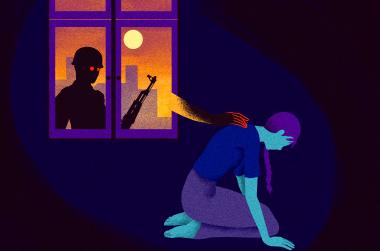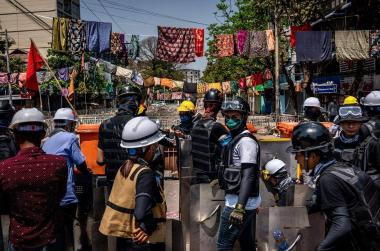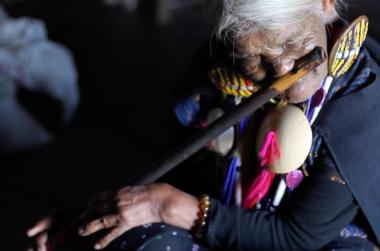When Aye* met the man that would become her husband she was yearning for stability after years of turmoil that had pushed her into prostitution to support her family. Instead he became another mouth to feed, living off her money while reproaching her for the way she earned it.
“I thought I would have someone to depend on. He said he understood, but he abused us. He would constantly insult me, even though he relied on my income,” she said. The abuse spiralled towards violence.
“He lived at the house I was renting, and I had to bear with him every time he came home drunk. The worst was when he insulted my mother.
“I could no longer stand it when he tried to hit her.”
It was difficult to see a way out.
Trouble crept into Aye’s life when she was still a child, curling its bitter tendrils around her in a subtle snare that pulled tighter the more she twisted.
Her father abandoned the family when she was small and they were left with nothing. Swept into financial desperation, Aye’s mother sought more lucrative employment in the country’s second city of Mandalay.
“My mother worked as a sex worker to raise us. She didn’t tell us she was doing it, but I knew. I knew mother was involved with men and I felt terrible about it,” Aye says.
It was just supposed to be a stop-gap. Her mother earned cash as a prostitute by night, but by day she learned how to sew and was eventually able to open her own tailor shop.
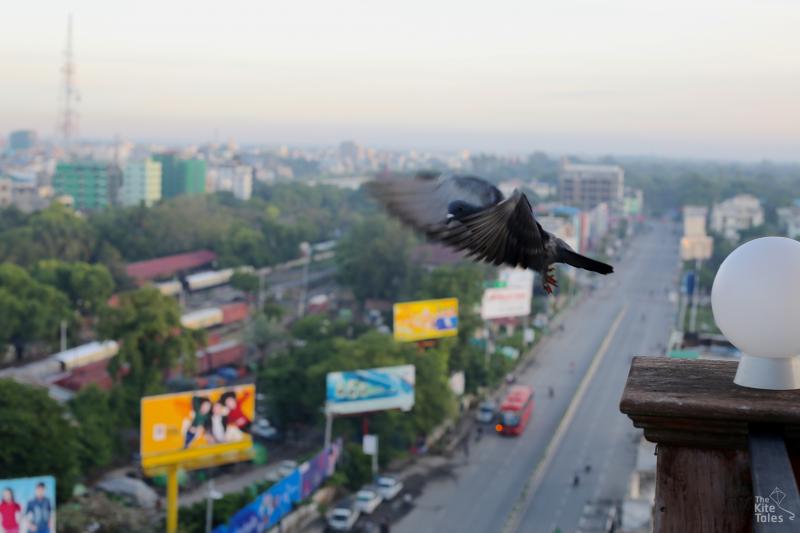
Aye found little interest in school in the new city.
She failed her high school exams and instead of resitting she found work in the often sordid world of Myanmar’s ubiquitous karaoke clubs. Here girls perform for an almost exclusively male audience clustered around beer soaked tables. When a customer takes a particular fancy to a girl, he can send her a tip or negotiate through a waiter to spend an evening with her.
“I wonder why I was so careless with my life,” she says.
“I was mad about singing, and I’d perform at school fairs and such. I wanted to sing and make money. My mother didn’t want me to work there at first. She didn’t want me to have the same life as her. But I told her I just wanted to sing, so she let me try it.
“There was a frequent customer who became my boyfriend. He was about my age and I had planned to marry him. I slept only with him. But when I got pregnant, he wouldn’t marry me and left.
“So I had my daughter and I had to live for her,” she says.
In many ways Myanmar is a country with a big heart. A strong sense of civic duty and generosity — largely channeled through donations to the country’s mainly Buddhist religious organisations — helped people withstand some of the economic and social hardships imposed on the country under the junta. Myanmar is often seen as one of the most generous nations in the world.
But decades of military rule saw the country’s civilian institutions crumble and there are few social protections to help people — and especially women — when things go wrong.
With little education or training, Aye says she felt she had no option but to follow her mother’s route into the sex industry to help provide for the family. But after finding out her mother had contracted HIV, she was acutely aware of the risks she ran.
“I was so scared. I mean, you have to be with a man, a stranger that you don’t know, the whole night. What would happen to you? Will you be murdered? I had so many worries.
“Later, I worked at KTV bars where you could have a ‘sponsor’. I’ve had about three. I don’t go with a lot of people because I’m afraid. I’ll only (spend whole nights) when I’m in dire straits.
“I try to use protection so I don’t get (HIV). But some don’t want to use any protection. So I make sure I take regular blood tests. I’m careful."
Trapped in an abusive marriage, she knew she had to fight to protect her family.
“I left. I attended law courses and I divorced him through the courts. It’s only been about a year and he’s still making trouble for us, but I’m not scared.”
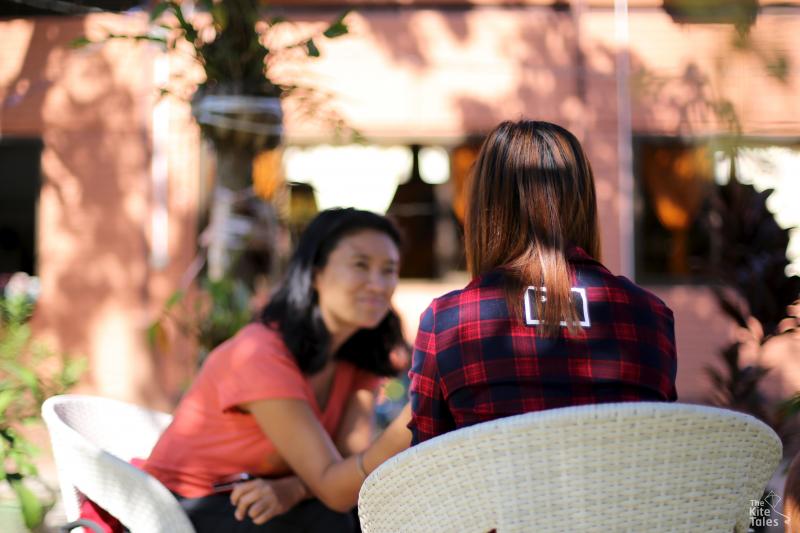
Aye has since found work -- and a precious well of confidence -- with a non-governmental organisation helping other sex workers.
“Sometimes police arrest girls who work on the street for no reason. I used to be very scared of the authorities, but now I go to the police station and ask why are they arrested and under which article of the law.”
“At the moment I’m just working at this (NGO) and I have a sponsor. It’s not much but it’s spending money. He has a family to look after too. He gives 50,000 kyats ($50) or sometimes 100,000 kyats. I make sure that’s enough to live on.”
She draws inspiration from the advice she received from a pioneer in sex workers’ rights in Myanmar, Kaythi Win of the Bangkok-based Asia Pacific Network of Sex Workers (APNSW).
“She really helped me to believe in my future. Whenever I felt down and doubted myself, she encouraged us. I always think I’m uneducated and there’s little I can do. But she said, ‘You don’t have to be educated. The experiences you’ve had aren’t in any books. You sacrificed your life for these experiences. So make the best use of them. Have ambition about where you want to be in the next five years.’"
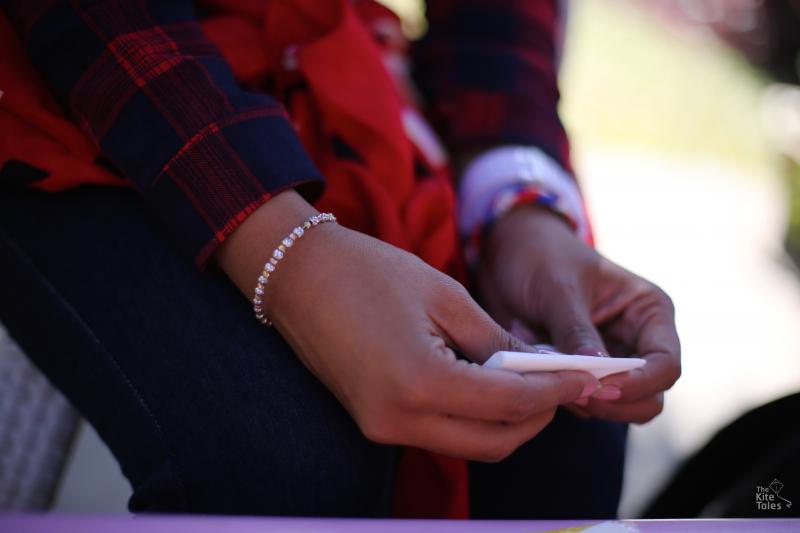
She is driven by her desire to make a difference in the lives of women like her.
“I really enjoy helping others. I like educating people. When I go and speak to them and they call me, ‘teacher’, it makes me very happy. I wouldn’t trade that with anything. I never get tired or think it’s a chore to answer their questions, whether it’s an hour or more. That’s when I know what I really want to do: I want to work for them.
“I don’t have very grand ambitions. I want my family to live in a house I own. I’d like to open a shop for my mother and I want to have a place in the NGO world. That’s all.”
She is determination to provide a better future for her daughter, now six.
“I want her to be educated. Not like me. I cannot change (the past) so I need to make the best of things,” she adds.
“I don’t want to do this job anymore because of her. I can understand my mother and I appreciate her providing for us. But I’m worried my daughter might not be able to understand me. I don’t want her future to be blighted,” Aye says, and suddenly tears begin streaming down her face.
She has had to reassure her mother that she will not marry again.
“She needn’t worry because all I need is her and my daughter. My life is complete with them.”
(Interviewed in January 2017)
* Her name has been changed to protect her identity


